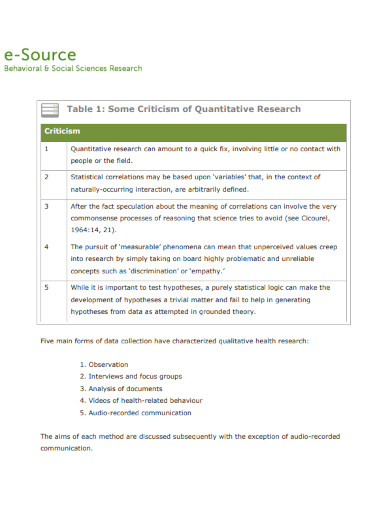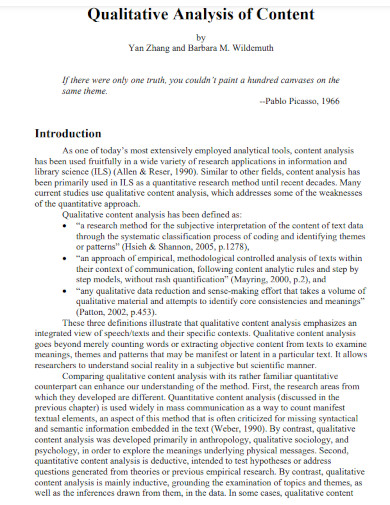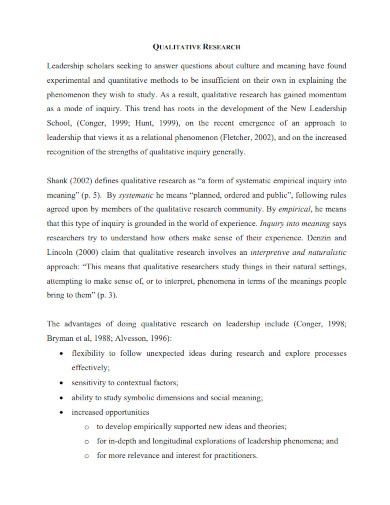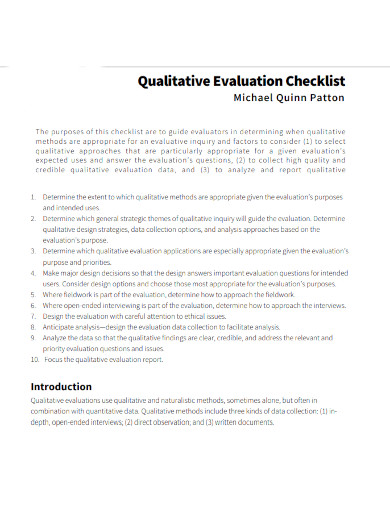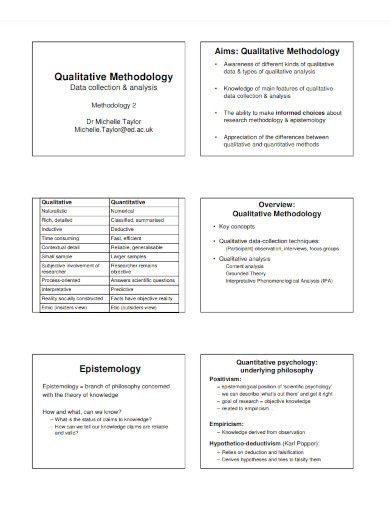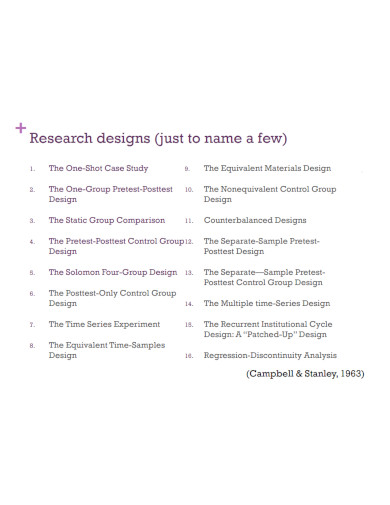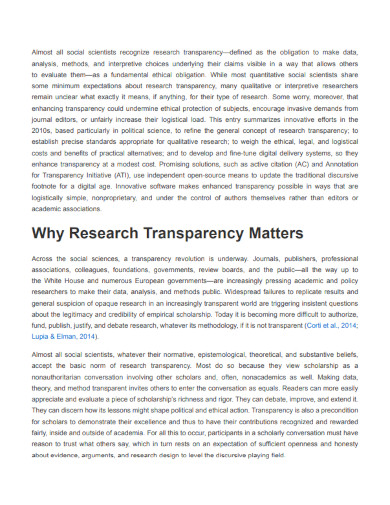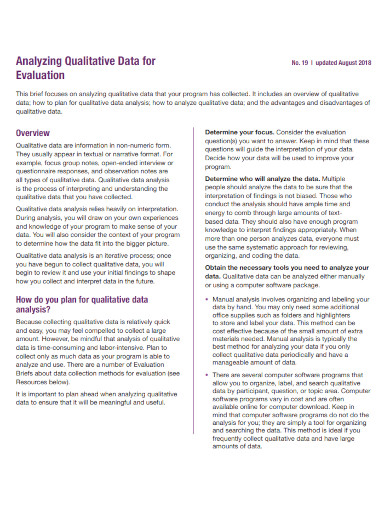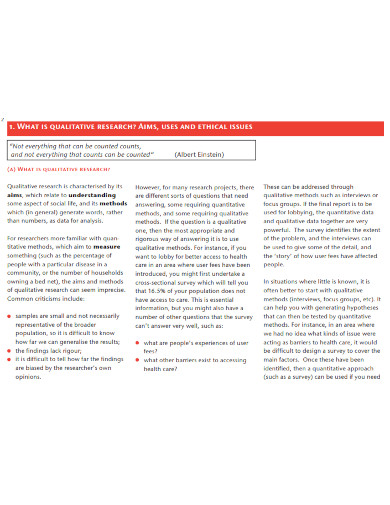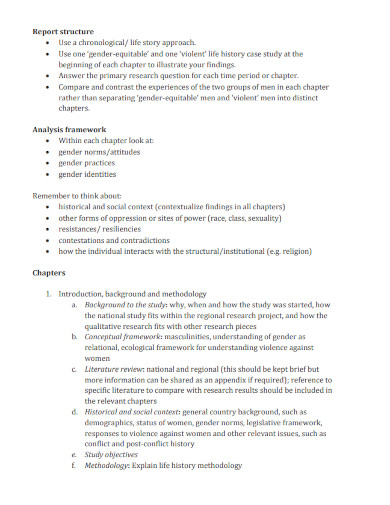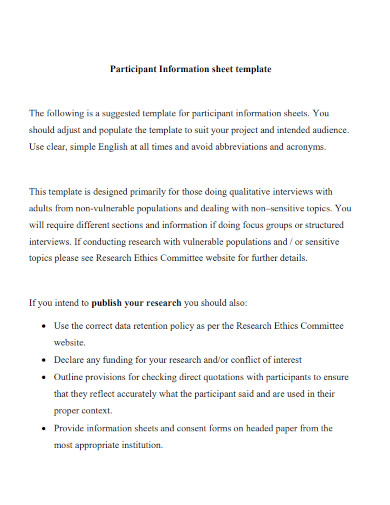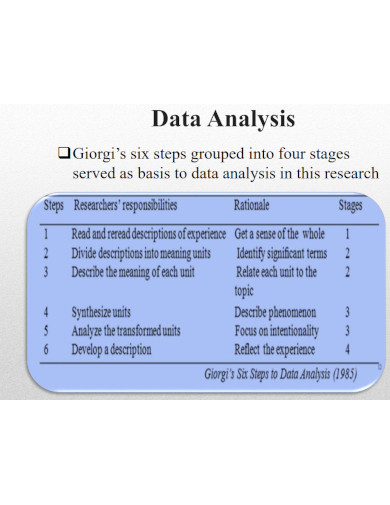24+ Qualitative Examples to Download
When researcher ingrains themselves in a community to understand the lives and the everyday hustle of a person in the community, the researcher is using ethnography as their research method. Ethnography is a technique used by researchers who are studying a specific type of qualitative research.
1. Qualitative Research Methods
2. Qualitative Research Designs
3. Qualitative Methods
4. Qualitative Analysis of Content
5. Introduction to Qualitative Research
6. Essentials of Consensual Qualitative Research
7. Qualitative Research Template
8. Qualitative Methods In Implementation Science
9. Qualitative Evaluation Checklist
10. Qualitative Data Analysis Report
11. Qualitative Methodology
12. Qualitative Survey
13. Transparency in Qualitative Research
14. Qualitative Data Analysis
15. Analyzing Qualitative Data for Evaluation
16. Quality Assurance of Qualitative Research
17. Qualitative Research Methodology
18. Qualitative Research Practice
19. Qualitative Report Template
20. Qualitative Protocol Guidance and Template
21. Qualitative Participant Information Sheet Template
22. Qualitative Questionnaires
23. Qualitative Dissertation Oral Defense Template
24. Introduction to Qualitative Data Analysis
25. Carer’s Passport
https://images.examples.com/wp-content/uploads/2022/08/Carer%E2%80%99s-Passport.jpg” alt=”Carer’s Passport” />civilservice.blog.gov.uk[/ns_col]
[/ns_row]What Is a Qualitative Research
Qualitative research is an effort to study a specific phenomenon or topic that is created through inductive reasoning. This often involves the usage of different qualitative methods to obtain quality data to use in the research.
How to Select a Qualitative Research Topic
Well-written qualitative research can contribute to a gap in a specific field of knowledge. If you are still confused about how a qualitative research topic or qualitative essay questionnaire should look, you may check any of the qualitative research examples, samples, and PDFs in the list above.
1.) Choose a Specific Topic
Begin by choosing a topic you are interested in. This step will dictate how much innate knowledge and interest you have in your topic. One of the biggest factors in successful research is the researcher’s interest in the topic they are working on. Not only that but this step will also dictate if there is a high demand for the topic you are going to be focusing on.
2.) List out the Possible Subtopics in the Topic
After you have selected your topics, you must list out the possible research topics you can make. These topics should hit a specific niche in the current knowledge of the topic that is missing and relevant. After all, you cannot make a research topic without the need and relevance of the data you are gathering.
3.) Select a Specific Phenomenon or Behavior
When you have listed out the possible subtopics, you must select a specific phenomenon or behavior you want to research. Since qualitative research requires a bottom-up approach, this means qualitative research will select a specific phenomenon or behavior and check if it has a causal or correlative relationship with another concept or idea.
4.) Create a Qualitative Research Topic
After you have done all the steps above, it is time to create a qualitative research topic to work on. Note, that your research topic will not be set in stone and it may change when needed.
FAQs
Qualitative vs quantitative; what is the difference between qualitative and quantitative research?
There are two types of research scholars can undertake, these are qualitative and quantitative research. Qualitative research is a research approach that tackles a qualitative research question or topic. Researchers will obtain qualitative data through inductive research methods, which require a bottom-up approach. These methods will span interviews, case studies, and more of the like, as it draws data from patterns created by specific modes of observation. Quantitative research is a research approach that tackles a quantitative research question or topic, which will require plenty of participants and data. Surveys and group interviews are the main research method of quantitative research due to their ability to gather mass amounts of data in one go. A quantitative research topic requires the researcher to approach the topic with a deductive approach.
What is the purpose of qualitative research?
Qualitative research often deals with subjective data, this means that the data obtained is unique per person, animal, or living thing. This type of research allows us to obtain codes and data from unique perspectives which would otherwise not be possible. Not only does it obtain unique personalized data and perspectives, but qualitative research will also let us understand different social dynamics and realities other people experience.
Why are there so many forms of qualitative methods that researchers use to obtain data?
The qualitative data used in qualitative research is very subjective and only true to an individual. This means that no one method fits all unlike the quantitative approach. The subjective nature of qualitative data means that no data is the same, and will require extensive observation and code generation. That is the main reason why there are so many forms of qualitative research methods used in qualitative research.
Qualitative research is a very important research approach as it facilitates inductive reasoning. This reasoning seeks to create a general position that has a causal or correlative relationship with a specific phenomenon. In conclusion, qualitative research will take more time as it focuses on quality data and information.




